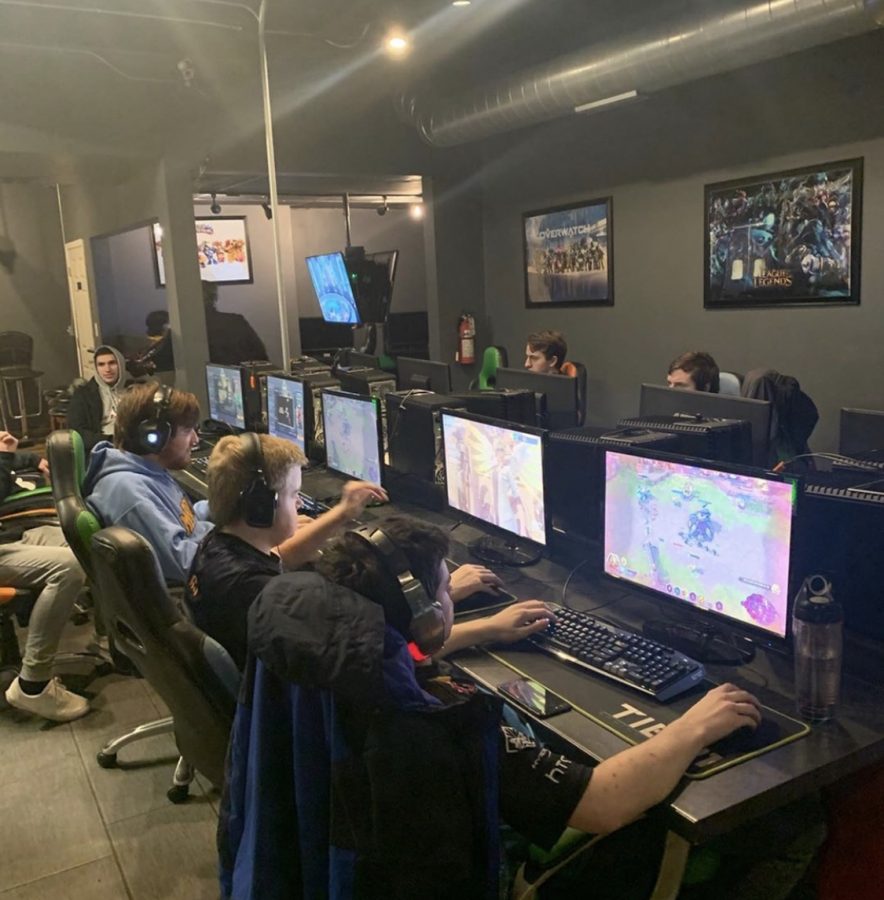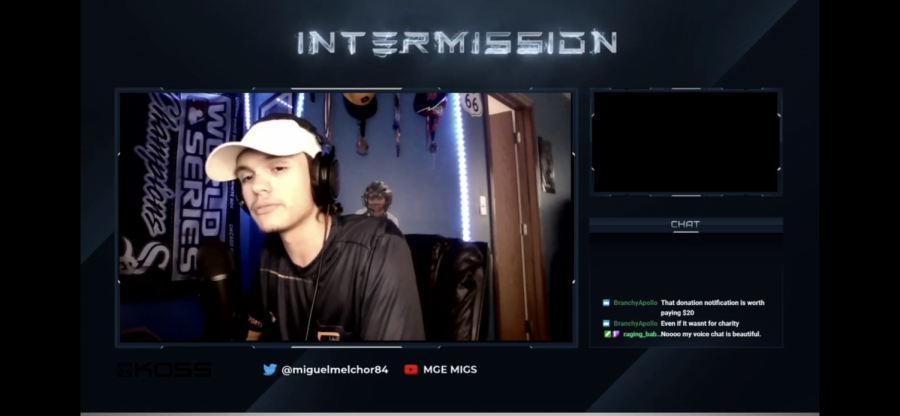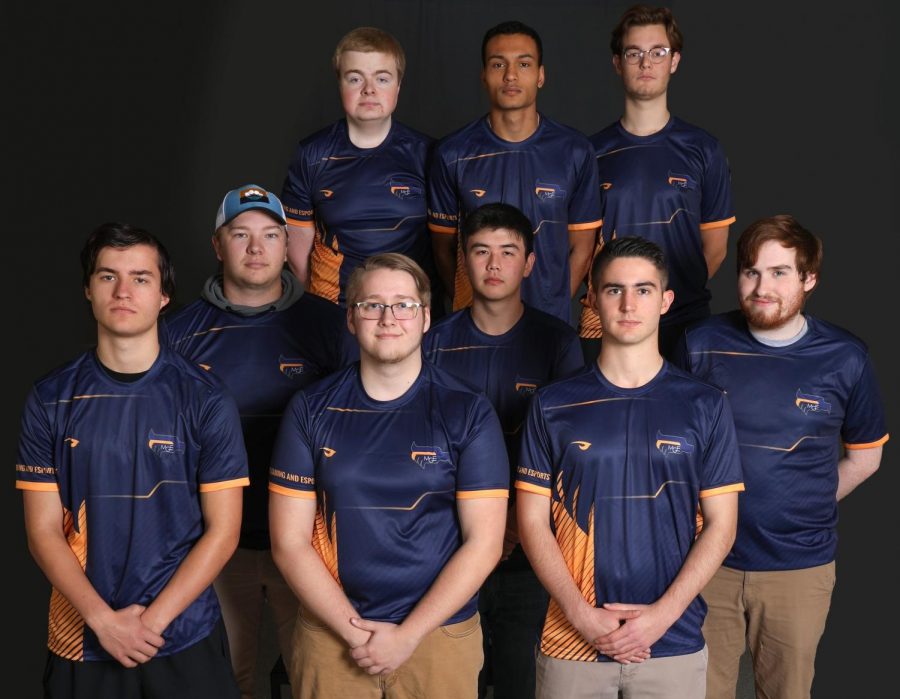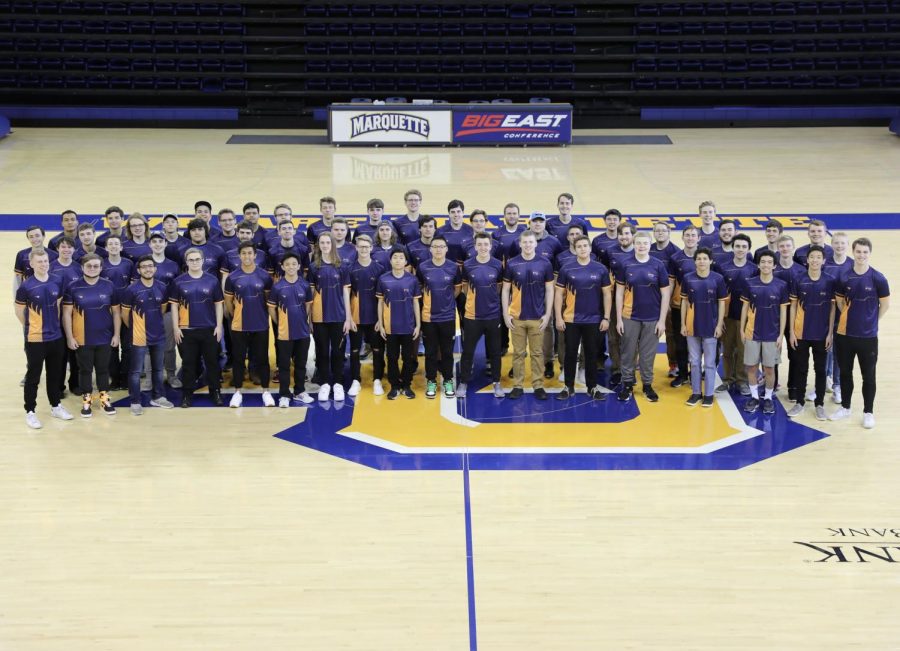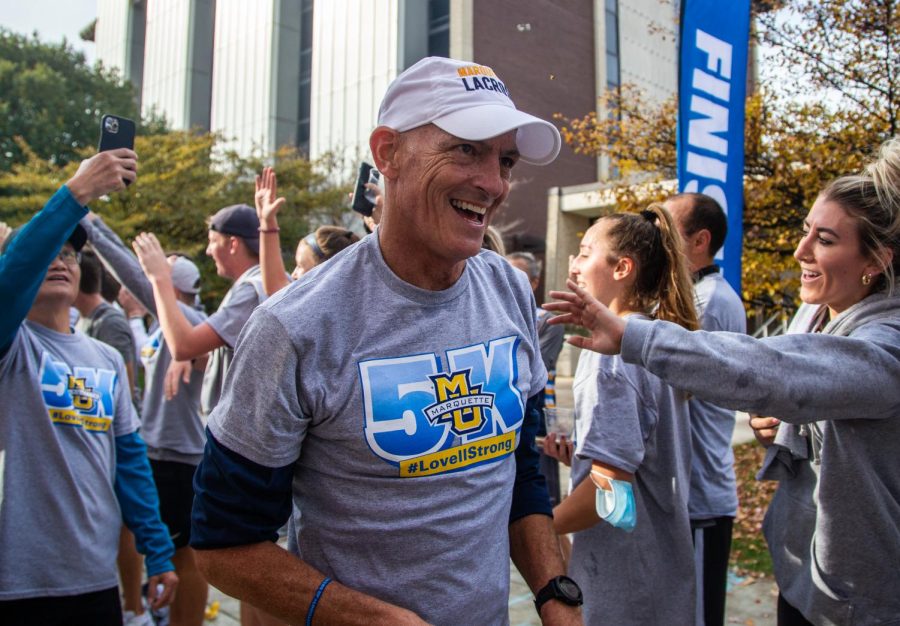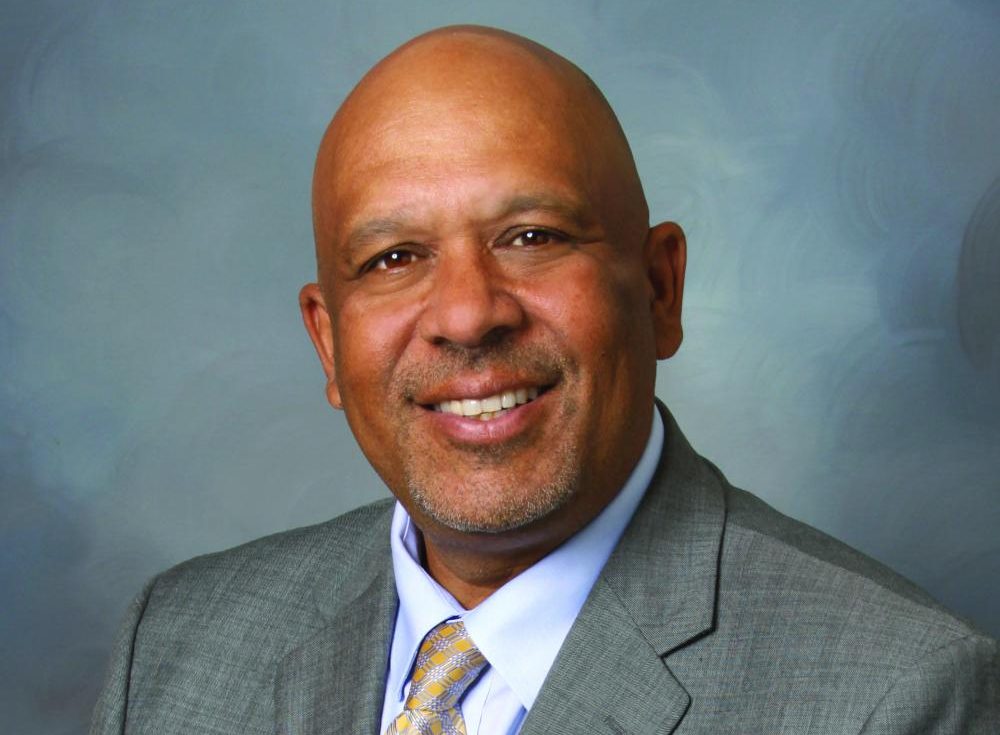University President Michael Lovell announced in his 2019 presidential address that Marquette University would be the first Division I athletics program to have varsity esports, or competitive video gaming. Lovell said the club would transition to a varsity sport during the fall 2019 semester.
One year after the address, esports has yet to become a varsity sport.
Lovell previously said it would be “fairly easy” to find a corporate sponsor for the club, but the transition has been pushed back twice due to the inability to find a sponsor.
Associate athletic director Scott Kuykendall said Jan. 19 the current goal is to have an identified sponsor by the 2020-21 academic school year.
Unfortunately, Patrick Glogovsky, the esports club president and senior in the College of Communication, and Riley O’Brien, the esports club vice president and senior in the College of Arts & Sciences, will not be able to see the club’s transition into a varsity sport. The two started the club together in 2015. They will graduate this spring.
Glogovsky said it’s disappointing that the university is struggling to find a sponsor.
“It was only disappointing because my understanding was that if it wasn’t going to be starting this fall, it would be this semester, but now that’s not a thing,” O’Brien previously told the Marquette Wire.
Other Marquette University DI varsity sports are sponsored by companies like Pepsi, Aurora Health Care and Midwest Foods.
The university’s inability to follow through with its promises is unfair to club members.
Lovell said establishing esports as a varsity sport would help strengthen the university’s “student recruitment prospects in an increasingly competitive environment.”
But without establishing esports as a varsity sport after a year of false promises, it is unclear whether students are choosing Marquette for esports. Prospective students who may be interested in a varsity esports team may be discouraged from enrolling given the setbacks.
Total enrollment for the Class of 2023 was down 225 students from the previous year, according to the Office of Institutional Research and Analysis. This may be due to demographic changes facing higher education. The amount of college-age students is expected to decline by 15% to 25% beginning in 2026, which Lovell previously said is noted in the book “Demographic and the Demand for Higher Education” by Nathan Growe.
To stay competitive with other universities, the university should consider investing in an emerging area like esports. Marquette is falling behind the 175 colleges and universities that have established varsity esports teams, according to Next College Student Athlete.
By not having an established varsity esports program, Marquette is missing out on an opportunity to recruit potential esports players.
Despite decreasing overall enrollment, Glogosky said there has been a rise in popularity and student interest in esports. He also said the club had 100 members at its first meeting for the fall 2019 semester, which is significantly more than the past few years.
With increasing student interest, the university should make more deliberate efforts to meet its goals and ensure students are able to take advantage of the opportunities esports has to offer.
An estimated 194 million people viewed esports events in 2019, surpassing the 98.2 million 2019 Super Bowl viewers and 14 million 2019 World Series viewers. Additionally, League of Legends tournaments incurred 58 million viewers, surpassing the 38 million MLB viewers, 32 million NBA viewers and 11 million NHL viewers.
The university should take notice of esports’ rapidly growing profitability across the world. Esports was estimated to generate $1.1 billion in revenue by the end of 2019, according to Forbes.
With worldwide growing popularity and revenues, the university cannot afford to miss out on the opportunity of expanding the esports program — and students must be the priority.

